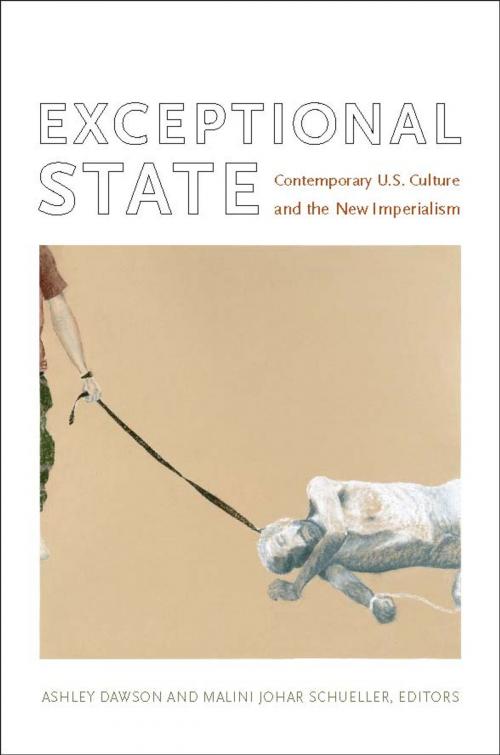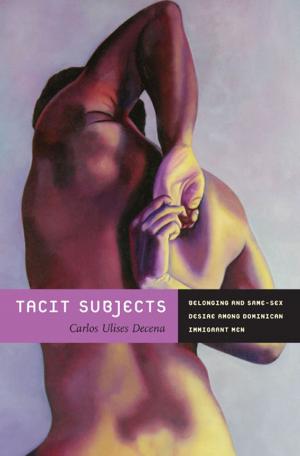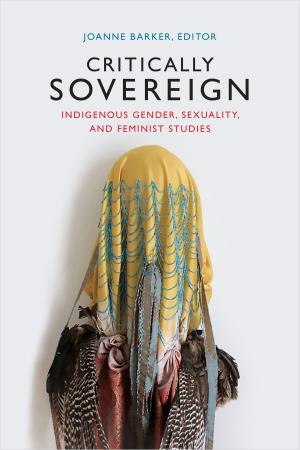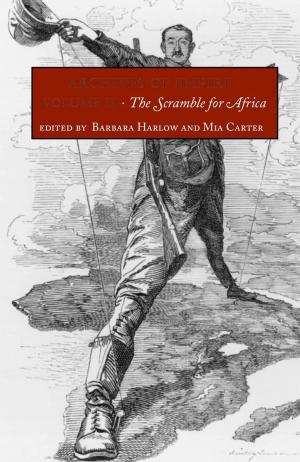Exceptional State
Contemporary U.S. Culture and the New Imperialism
Fiction & Literature, Literary Theory & Criticism, American, Theory| Author: | John Carlos Rowe | ISBN: | 9780822389644 |
| Publisher: | Duke University Press | Publication: | June 29, 2007 |
| Imprint: | Duke University Press Books | Language: | English |
| Author: | John Carlos Rowe |
| ISBN: | 9780822389644 |
| Publisher: | Duke University Press |
| Publication: | June 29, 2007 |
| Imprint: | Duke University Press Books |
| Language: | English |
Exceptional State analyzes the nexus of culture and contemporary manifestations of U.S. imperialism. The contributors, established and emerging cultural studies scholars, define culture broadly to include a range of media, literature, and political discourse. They do not posit September 11, 2001 as the beginning of U.S. belligerence and authoritarianism at home and abroad, but they do provide context for understanding U.S. responses to and uses of that event. Taken together, the essays stress both the continuities and discontinuities embodied in a present-day U.S. imperialism constituted through expressions of millennialism, exceptionalism, technological might, and visions of world dominance.
The contributors address a range of topics, paying particular attention to the dynamics of gender and race. Their essays include a surprising reading of the ostensibly liberal movies Wag the Dog and Three Kings, an exploration of the rhetoric surrounding the plan to remake the military into a high-tech force less dependent on human bodies, a look at the significance of the popular Left Behind series of novels, and an interpretation of the Abu Ghraib prison photos. They scrutinize the national narrative created to justify the U.S. invasions of Afghanistan and Iraq, the ways that women in those countries have responded to the invasions, the contradictions underlying calls for U.S. humanitarian interventions, and the role of Africa in the U.S. imperial imagination. The volume concludes on a hopeful note, with a look at an emerging anti-imperialist public sphere.
Contributors. Omar Dahbour, Ashley Dawson, Cynthia Enloe, Melani McAlister, Christian Parenti, Donald E. Pease, John Carlos Rowe, Malini Johar Schueller, Harilaos Stecopoulos
Exceptional State analyzes the nexus of culture and contemporary manifestations of U.S. imperialism. The contributors, established and emerging cultural studies scholars, define culture broadly to include a range of media, literature, and political discourse. They do not posit September 11, 2001 as the beginning of U.S. belligerence and authoritarianism at home and abroad, but they do provide context for understanding U.S. responses to and uses of that event. Taken together, the essays stress both the continuities and discontinuities embodied in a present-day U.S. imperialism constituted through expressions of millennialism, exceptionalism, technological might, and visions of world dominance.
The contributors address a range of topics, paying particular attention to the dynamics of gender and race. Their essays include a surprising reading of the ostensibly liberal movies Wag the Dog and Three Kings, an exploration of the rhetoric surrounding the plan to remake the military into a high-tech force less dependent on human bodies, a look at the significance of the popular Left Behind series of novels, and an interpretation of the Abu Ghraib prison photos. They scrutinize the national narrative created to justify the U.S. invasions of Afghanistan and Iraq, the ways that women in those countries have responded to the invasions, the contradictions underlying calls for U.S. humanitarian interventions, and the role of Africa in the U.S. imperial imagination. The volume concludes on a hopeful note, with a look at an emerging anti-imperialist public sphere.
Contributors. Omar Dahbour, Ashley Dawson, Cynthia Enloe, Melani McAlister, Christian Parenti, Donald E. Pease, John Carlos Rowe, Malini Johar Schueller, Harilaos Stecopoulos















